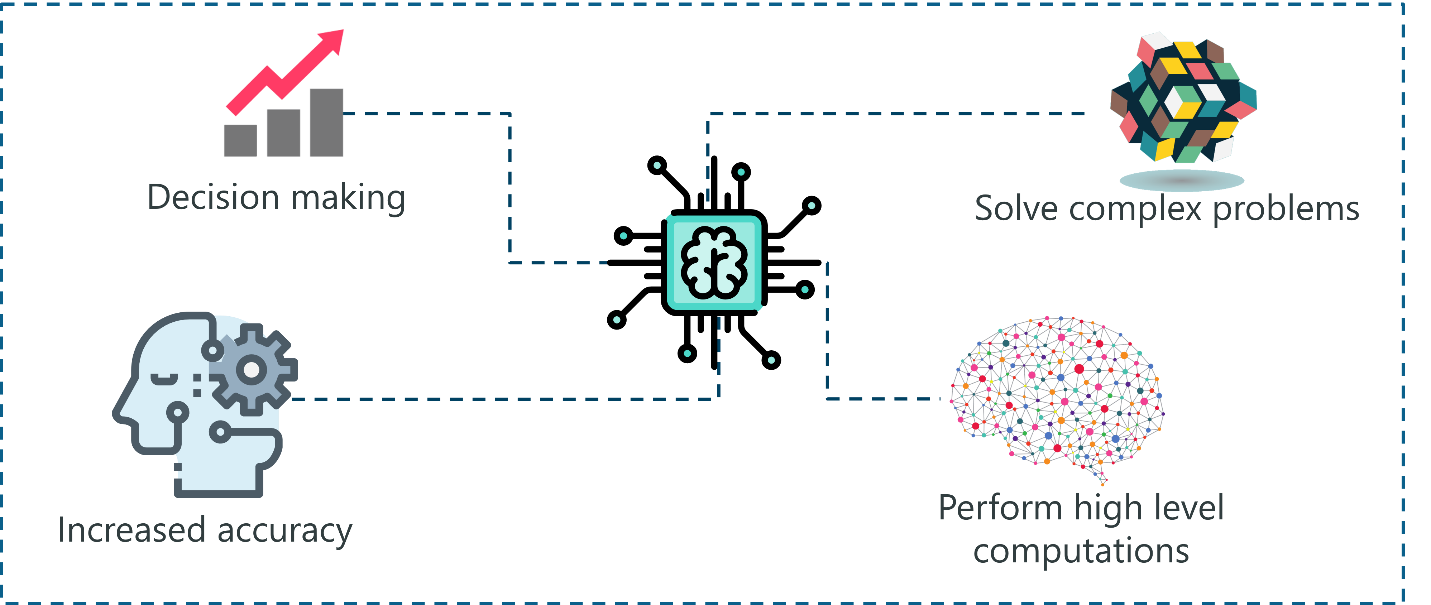Artificial Intelligence, or AI, is one of the technologies that has revolutionized the
A Look at the History of AI
Artificial Intelligence is loosely defined as computer systems developed with capabilities of task performance that would normally require human intelligence. This can include object detection, solving complex issues, and
In classical computing, coders give the machine inputs, logic, and outputs. Different types of AI programs will provide desired outcomes on their own, based only on the input of information and the
Tale as Old as Time

The idea of making machines work to entertain us or do simple tasks isn’t a new one at all. Egyptian and Chinese engineers from long ago built working automatons, some of which are hard for modern scientists to replicate with our
If you’re afraid of robots coming to life and destroying mankind, you’re in good company. Ancient Greeks had frightening ideas of
These early machines weren’t all frightening, however.
Since 1927’s release of the film Metropolis, robots have been featured in movies. They were, until more modern times, usually depicted as destructive machinery bent on world domination and
Primitive Robots Pave the Way for Artificial Intelligence
A little closer to our own time, the first electronic computer was invented in 1941. When the technology involved in 1949 to include stored programs, the conditions were right for humans to start considering
In 1952, a computer program that played checkers was introduced. It was the first program that was capable of “learning.” Throughout the following decade, many more AI theories were introduced, but the culmination of them was in 1965 when
After ELIZA, the field of AI evolved rapidly and included robots who used logic and reasoning when making decisions. Throughout this evolution, movies such as 2001: Space Odyssey would keep the mistrust of artificial intelligence alive
The reality of AI through the early 2000’s, though, had little to do with robot overlords.
Different Types of AI

Generally, there are four different types of AI. Two of these are very common in today’s technology, while two are still theories, the stuff of science fiction movies.
- Reactive Machine
Reactive machines use previous data to make decisions in the moment, such as a computerized chess game. This AI doesn’t use experience or memory to make these decisions; it uses predictions and conditions at the time the program isbeing used.
Reactive machines do not have any concept of the present or the future and cannot make decisions based on memories it has formed of similar situations faced in the past. Of all four types of AI, reactive machines form most of the artificial intelligence wesee now. - Limited Memory
Limited memory uses data to evaluate situations and make appropriate decisions. Limited memory takes stored data, previously learned information, and events into consideration when making decisions. Limited memory observes data and action that it is exposed to and createsexperience-based knowledge.
AI-based antivirus software is limited memory Artificial Intelligence, and can make decisions based on what it learns, or experiences. It is effective as part of a cybersecurity platform because it can use “reason” to evaluatenetwork threats. - Theory of Mind and Self-Awareness
The last of the different types of AI are more theoretical in nature and haven’t been created yet. The theory of mind is the concept that AI will understand that all entities will have its own motives, intentions,and emotions.
Self-awareness will involve an artificial intelligence that both understands the consciousness of others and has a concept of itsown existence.
These last two types of AI are the classic science fiction plots we embrace when we think of robot overlordsdestroying civilization.
Using AI for Antivirus Software
AI is used for many things, of course, but for cybersecurity purposes it is a very effective way to improve traditional antivirus software. Different types of AI and machine learning are used in many antivirus platforms on the
How Traditional Antivirus Works
Traditional antivirus compares potential malicious threats to previous instances of similar threats. It uses pattern analysis, data signatures, and files to recognize malicious files. Once recognized, it moves quickly to stop these files from infecting
In the past, this might have been enough. Cybersecurity threats are continuing to rise, however, and are getting more aggressive and sophisticated. Hackers are no longer single, easily defeated attackers; many of them are highly organized national groups with state sponsorship. There are also variations of previously recognized malware, as well as increasingly advanced threats including ransomware such
How AI-Based Antivirus Works
AI-based antivirus software can make decisions based on what it learns, or experiences. It is effective as part of a cybersecurity platform because it can use “reason” to evaluate network threats. It uses machine learning to improve its own recognition and can remember
The Downfall to AI-Based Antivirus
AI-based antivirus can effectively detect most malware programs, but sometimes AI can be a little overzealous. It can flag normal programs as malicious when they are poorly designed. In other words,
The Solution is a Balanced Approach
To take advantage of
To assure your antivirus only attacks genuine malware, your overall security strategy should involve a human
A human discerns the difference between bad programs and good, if poorly written, programs, files, and apps. Once the
Datum Consulting is a Balanced AI-Based Cybersecurity Solution
Datum Consulting is a
Learn more about these different types of AI antivirus and how Datum Consulting will help your business stay safer than traditional antivirus platforms. Let us show you how Datum Consulting has the cybersecurity solutions

